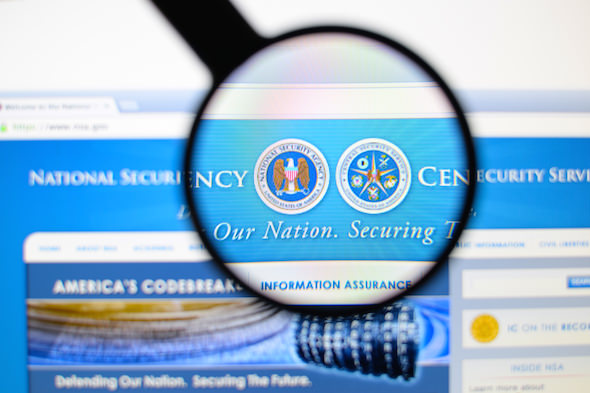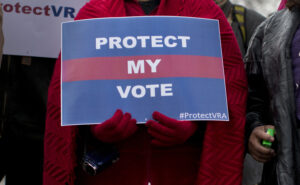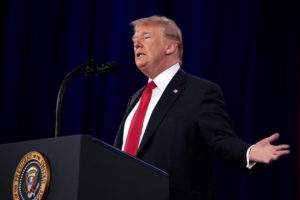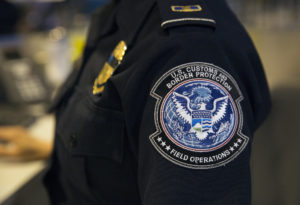Why the ACLU’s Big Victory Against NSA Surveillance Falls Short
A federal court ruling that the National Security Agency’s vast telephone metadata collection program is illegal is a clear advance for civil liberties, but it doesn't go far enough.

I don’t like to be a wet blanket, but at the risk of mixing metaphors, I’m going to throw some cold water on the decision last week in American Civil Liberties Union v. Clapper, which held that the National Security Agency’s vast telephone metadata collection program is illegal.
While the ruling by the 2nd Circuit Court of Appeals is a clear advance for civil liberties — and the ACLU legal team that engineered it has every right to be proud — the advance, in fact, is modest and incremental.
To understand why I’m less enthused than some others, let’s deconstruct what the decision actually said as well as what it didn’t say.
The ACLU, in concert with its New York affiliate — the New York Civil Liberties Union — filed the case to have the NSA’s mammoth and indiscriminate surveillance sweeps conducted under Section 215 of the Patriot Act declared unconstitutional. They also sued to have the sweeps invalidated under the terms of the statute itself for exceeding the scope of the statute, and they sought an injunction to stop the sweeps. They succeeded only with their statutory claim.
The unanimous 97-page opinion was penned by Judge Gerard Lynch — and joined by Judges Robert Sack and Vernon Broderick with a separate 13-page concurrence by Sack. Both Lynch and Sack are circuit court members, but Broderick is a district court judge designated to sit on the panel. (Appellate courts do this to give lower-court judges experience and to relieve staffing shortages.) All three were appointed to the bench by former President Bill Clinton. But then, so was William H. Pauley III, the U.S. District Court judge for the Southern District of New York whose earlier pro-government order dismissing the case was under appeal.
Lynch’s opinion is a model of clarity but also of caution. He begins with a historical overview that takes us back to the bad old days of the early 1970s, when the intelligence agencies of the Nixon era were running roughshod over civil liberties. The Nixonian abuses begat the hearings of the famed select committee on intelligence headed by Sen. Frank Church that resulted in passage of the Foreign Intelligence Surveillance Act (FISA) of 1978 and the creation of the Foreign Intelligence Surveillance Court (FISC) that were designed to curb the abuses.
Lynch’s narrative then fast-forwards through the attacks of 9/11 and the enactment of the Patriot Act in 2001. Section 215 of that legislation, together with subsequent revisions and congressional reauthorizations, amended FISA (as codified in 50 United States Code § 1861) to create the Frankenstein monster that is the NSA’s present telephone metadata program.
As Lynch notes, Section 215 allows the FBI — on behalf of the NSA — to “make an application [to the FISC] for an order requiring the production of any tangible things (including books, records, papers, documents, and other items) for an investigation to obtain foreign intelligence information not concerning a United States person [meaning, basically, a citizen or lawful resident] or to protect against international terrorism or clandestine activities.”
The section requires such applications to include “a statement of facts” showing that there are “reasonable grounds to believe the tangible things sought are relevant to an authorized investigation … to obtain foreign intelligence information. …”
Astonishingly, the government has interpreted this language to mean that it can force telecom companies on an ongoing and easily renewable basis to turn over digital records of virtually every phone call made in the country. Such records reveal not only the length of each call but the number on each end of the call and sometimes the location of the callers. And far from acting as a gatekeeper winnowing out frivolous surveillance requests, the FISC — which convenes in secret and whose members are appointed by the Chief Justice of the Supreme Court — has performed as a rubber stamp, approving surveillance applications at a rate exceeding 99 percent.
With this framework in place, the NSA has amassed a trove of metadata that it stores for rolling five-year periods, which it can access at any time with specific and detailed searches aimed at individual phone numbers.
The key to understanding Lynch’s rejection of the government’s interpretation are the words “relevant” and “authorized investigation” as used in Section 215. Lynch’s discussion of the terms is masterful, but before parsing them, he first had to rebuff two preliminary objections by the Department of Justice — following a long-established litigation script — that the case should be dismissed to avoid an embarrassing ruling on the merits. First, Lynch held that the ACLU plaintiffs, as phone subscribers, had sustained the necessary legal injury to establish standing to sue. Second, he determined that the NSA’s practices may be examined in courts of general jurisdiction rather than solely by the FISC. As a result, he found the ACLU’s lawsuit was not blocked or precluded by any need to maintain state secrecy.
Dispensing with the preliminaries, Lynch, to put it tenderly, proceeded to tear the government a proverbial new one, writing: “The records sought are all-encompassing; the government does not even suggest that all of the records sought, or even necessarily any of them, are relevant to any specific defined inquiry.”
Exposing the absurdity of the government’s position, he continued: “[T]he government effectively argues that there is only one enormous ‘anti-terrorism investigation’’ and that any records that might ever be of use in developing any aspect of that investigation are relevant to the overall counterterrorism effort.”
Lynch concluded that “such an expansive concept of ‘relevance’ is unprecedented and unwarranted.” He found, too, that Congress never intended to endorse such an astounding reading.
From there, however, the decision largely fell apart, as Lynch not only refused to rule on the constitutionality of the NSA’s implementation of Section 215 but also declined to order the government to stop its bulk metadata collection program. Instead, he wound up kicking the case back to Pauley on the District Court for further consideration, and inviting Congress to weigh in on whether to redraft and revamp the metadata program before Section 215 is due to expire on June 1.
To be fair to Lynch, judges often decline to make constitutional rulings when they can dispose of cases on lesser statutory grounds. Sometimes, however, judges are compelled to issue rulings on both statutory and constitutional bases, depending on the urgency of the matters before them or as a safeguard in the event that their statutory analyses are later found wanting by a higher court.
The ACLU’s case plainly was sufficiently urgent to necessitate constitutional adjudication.
To be fair again, it’s not as though Lynch ignored the constitutional concerns. In fact, he devoted 12 pages to what he termed the “vexing” Fourth Amendment questions implicated by the NSA’s data sweeps.
But after noting the seriousness of the issues, he ducked them, citing a series of old Supreme Court opinions which instruct that individuals have no reasonable expectation of privacy under the Fourth Amendment in information (such as the phone numbers they dial) that they voluntarily turn over to third parties. The cited cases include the decision most frequently invoked by the DOJ to uphold the constitutionality of the NSA’s dragnet surveillance — Smith v. Maryland, a 1979 case that upheld the constitutionality of installing a pen register without a warrant at a telephone company’s office to record the numbers dialed from a criminal suspect’s home.
In his concurrence, Sack ventured further, reminding us that one of the core functions of the judiciary is to examine the constitutionality of government actions. He even compared Edward Snowden’s disclosure of the metadata program to those of Daniel Ellsberg, which “gave rise to the legendary ‘Pentagon Papers’ litigation.” Alas, Stack’s views did not command a majority.
So where does the 2nd Circuit’s decision leave us? In the absence of any directive halting the NSA’s practices, the practices will continue at least until June 1 and even after that for any “investigations” initiated before that date. Meanwhile, the spotlight is now on Congress, which has three basic options as the June 1 deadline approaches. None, regrettably, would fundamentally alter the landscape of government surveillance.
Option No. 1 is to pass the USA Freedom Act, a version of which cleared the House in 2014 but has since stalled in the Senate.
If this bill becomes law, telephone metadata would be stored by phone companies rather than the NSA. Intelligence agencies could still access the data, but only with FISC approval upon specific showings of need. As under current law, however, the attorney general could authorize limited data sweeps in an “emergency” for seven days before seeking court endorsement.
The act would also make very minor changes to Section 702 of FISA (codified in 50 U.S.C. § 1881a) and the so-called PRISM and “upstream” programs designed under that section to intercept the content of emails and phone calls from terror suspects abroad. Unfortunately, as the NSA has acknowledged, such programs also “incidentally” sweep up the communications of Americans.
Additionally, under the act, a panel of amicus curiae (friends of the court) would be established to give “independent” advice to the FISC on privacy matters, and more FISC decisions would be declassified. However, the act would not repeal Executive Order 12333, promulgated by President Reagan in 1981, which empowers intelligence agencies to do nearly everything that they can under Section 702 but without any court oversight.
Both President Obama and Hillary Clinton have announced their support for the Freedom Act. Sen. Rand Paul has opposed the Freedom Act, arguing that it doesn’t go far enough to protect privacy interests.
Option No. 2 for Congress would be to reject the USA Freedom Act and instead ratify the Patriot Act Reauthorization bill sponsored by Senate Majority Leader Mitch McConnell. The bill would leave the status quo entirely unchanged until December 31, 2020.
The third option is for Congress to do nothing.
Doing nothing would allow Section 215 to sunset and expire. But as tempting as that choice may seem from a civil liberties perspective, it would actually do little to rein in the NSA. As Harley Geiger of the Center for Democracy and Technology has written on the influential Lawfare blog, the NSA could simply substitute another provision of FISA (50 U.S.C. § 1842) dealing with electronic pen registers and trap devices that would similarly permit it to acquire bulk telephone and email metadata. What we’re involved in, it now seems clear, is a game of move and countermove.
What then should our next move be? Politically, what we need at a minimum is an open, ongoing and informed national debate about the pervasive reach, cost, effectiveness and proper limits of government surveillance. Legally, at a minimum, we need judges willing to confront the full constitutional dimensions of whatever actions the legislative and executive branches undertake.
With the 2nd Circuit’s decision, we’ve made an incremental advance on the legal front. Politically, with all respect to Snowden, we’ve only barely begun.
Independent journalism is under threat and overshadowed by heavily funded mainstream media.
You can help level the playing field. Become a member.
Your tax-deductible contribution keeps us digging beneath the headlines to give you thought-provoking, investigative reporting and analysis that unearths what's really happening- without compromise.
Give today to support our courageous, independent journalists.






You need to be a supporter to comment.
There are currently no responses to this article.
Be the first to respond.